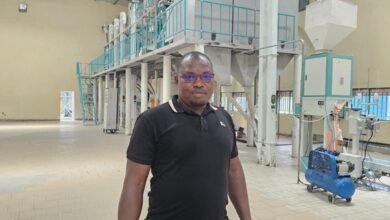Rwanda : on the path to the fourth industrial revolution
To achieve its new ambitions, Rwanda is embarking on the fourth industrial revolution, focusing on emerging technologies such as artificial intelligence to accelerate its socio-economic development.

By Aimable Twahirwa
As part of its efforts to promote emerging technologies, including artificial intelligence, machine learning, blockchain, and the Internet of Things (IoT), Rwanda is banking on these innovations to boost its socio-economic development, 30 years after the 1994 genocide.
Being part of a global network of 19 centers, the Centre for the Fourth Industrial Revolution in Rwanda shapes the trajectory of this revolution by integrating local knowledge that can foster global change.
Since its establishment, the center has brought together various stakeholders, including the government, private sector, civil society, and academia, to jointly design, test, and refine strategic frameworks and governance protocols aimed at maximizing the benefits of these new technologies.
Paula Ingabire, Rwandan Minister of Information and Communication Technology (ICT) and Innovation, emphasizes that Rwanda’s approach to the fourth industrial revolution is based on multi-stakeholder collaboration, allowing the center to gather contributions from a variety of stakeholders and enhance the effectiveness of its work.
« This allows the center to gather contributions from a variety of stakeholders (private, public, civil society, etc.), thereby maximizing the efficiency of its work, » she explains.
The center focuses particularly on harnessing artificial intelligence and data to address the country’s strategic technology priorities while ensuring responsible use of these technologies.
So far, the center has been collaborating with one of the startups hosted in the HealthTech Hub, Insightiv, to validate its AI-based radiology solution in close collaboration with the Rwanda Biomedical Center in designing a data-sharing framework for validation purposes.
AI to address issues affecting underserved communities

According to the center’s lead, support will primarily involve providing policy advice and piloting data governance frameworks to unlock secure and reliable access to data.
Rwanda has experienced remarkable growth, particularly through the adoption of innovative technologies, making this new center competitive for investors.
Efforts by the government and its partners to support innovation have led to a significant increase in innovative products aimed at addressing various challenges for the country and the continent.
Through targeted investments and policy development, the Rwandan government is leveraging artificial intelligence to find solutions to issues affecting underserved communities.
Alain Ndayishimiye, project lead at the Centre for the Fourth Industrial Revolution in Rwanda, explains that Rwanda seeks to promote these technologies to maximize their potential.
For example, since 2016, Rwanda has been using drones to rapidly deliver blood supplies to isolated health centers within the country. These AI-equipped drones can operate autonomously, scanning vast areas and using object detection algorithms to locate health facilities across the country.
Citing the example of the drone project, Ndayishimiye asserts that the goal is to develop and implement technology governance and policy protocols that will enhance the benefits of adopting emerging technologies such as artificial intelligence.
To date, the National Artificial Intelligence Policy in Rwanda serves as a roadmap to enable Rwanda to harness the benefits of AI and mitigate its risks.






